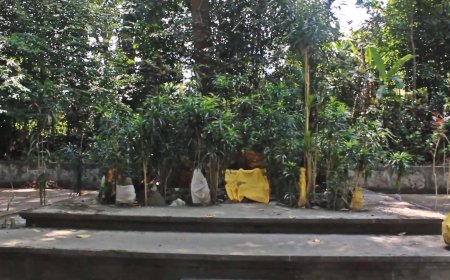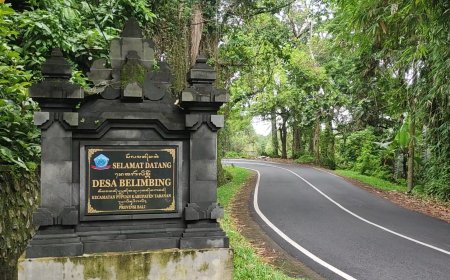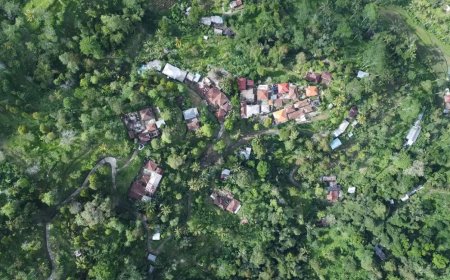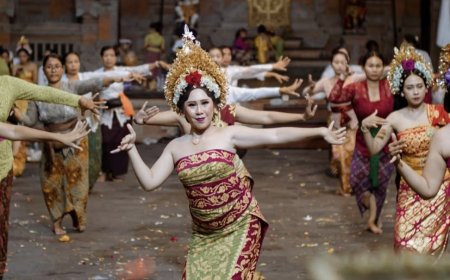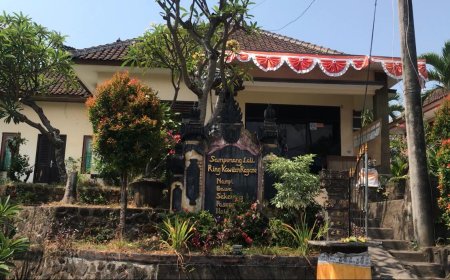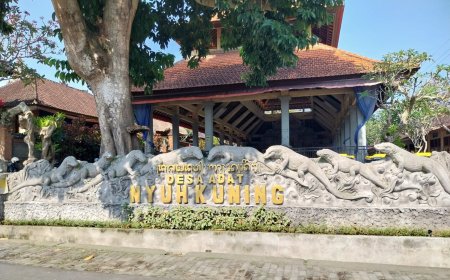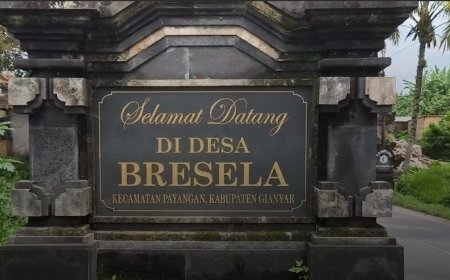Angseri Village: The Charm of an Agricultural-Based Village at the Foot of the Mountain
Angseri Village is a destination that offers a harmonious blend of nature and culture in Baturiti District. With a vision grounded in agriculture and local wisdom, this village serves as a living example of how communities can coexist in harmony with their environment. Angseri Village is not only a center for agricultural activities but also a symbol of vibrant social and cultural life at the foot of the mountain. Furthermore, the people of Angseri Village continue to live by the philosophy of "Tri Hita Karana", which has endured to this day.
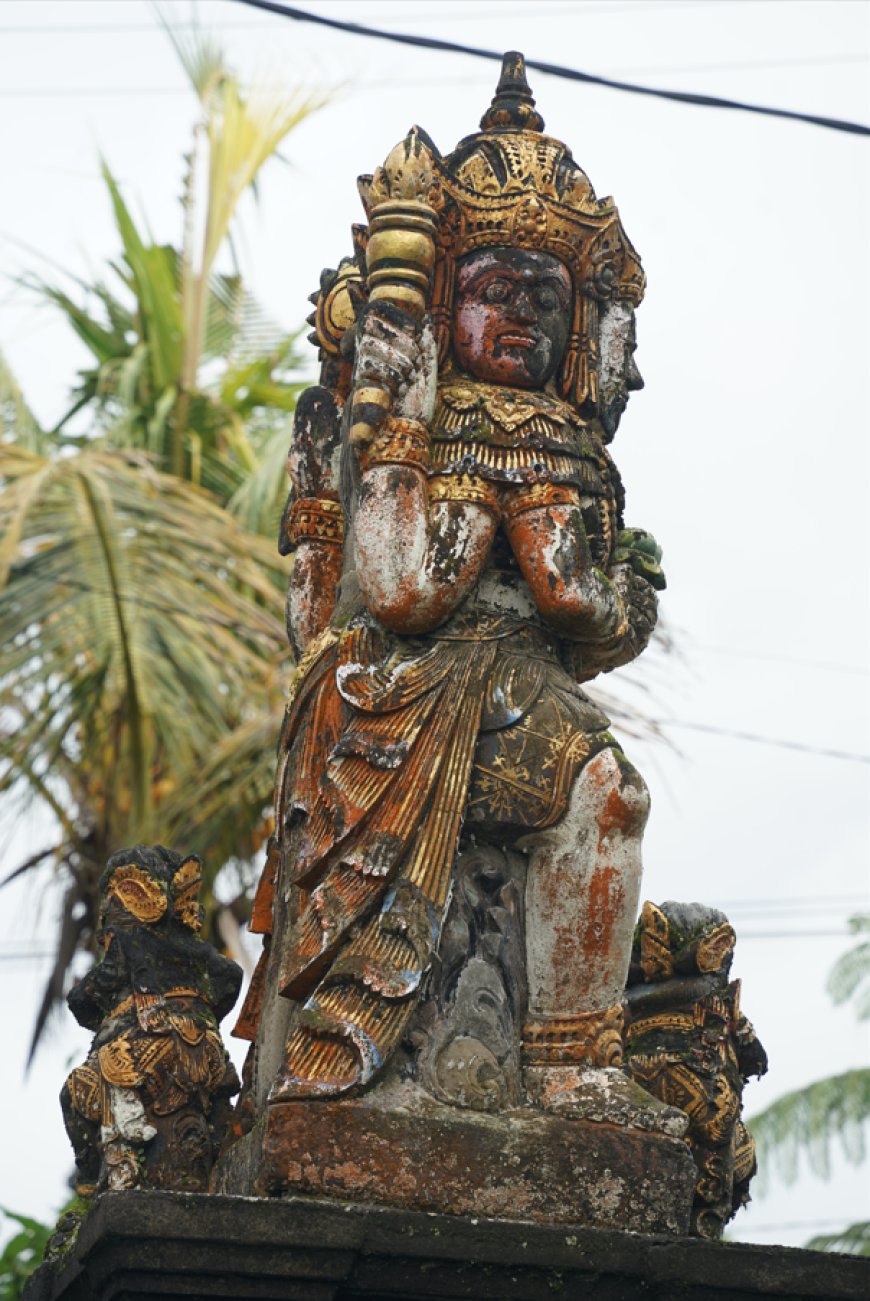
Angseri Village, located in Baturiti District, is a captivating village known for its natural beauty and rich cultural heritage. The village boasts a profound history and diverse topography, with the majority of its community relying on the agricultural sector. Spanning an area of 758.160 hectares, Angseri Village utilizes its land for various purposes, including 38.22 hectares for residential areas, 226.545 hectares for rice fields, 642.16 hectares for plantations or dry fields, 10.237 hectares for forests, and 20 hectares for public facilities. This land utilization reflects a balance between human needs and environmental conservation, which serves as a key attraction of the village.
The village is divided into four administrative hamlets: Banjar Tegeh, Banjar Angseri, Banjar Angseri Kelod, and Banjar Munduk Lumbang, each with its own unique characteristics in community life. The road infrastructure connecting these areas spans a total length of 7 kilometers, consisting of 3 kilometers of provincial roads and 4 kilometers of district roads, facilitating residents' mobility and economic activities. With a combination of natural beauty, rich history, and friendly people, Angseri Village is a remarkable destination worth visiting and exploring.
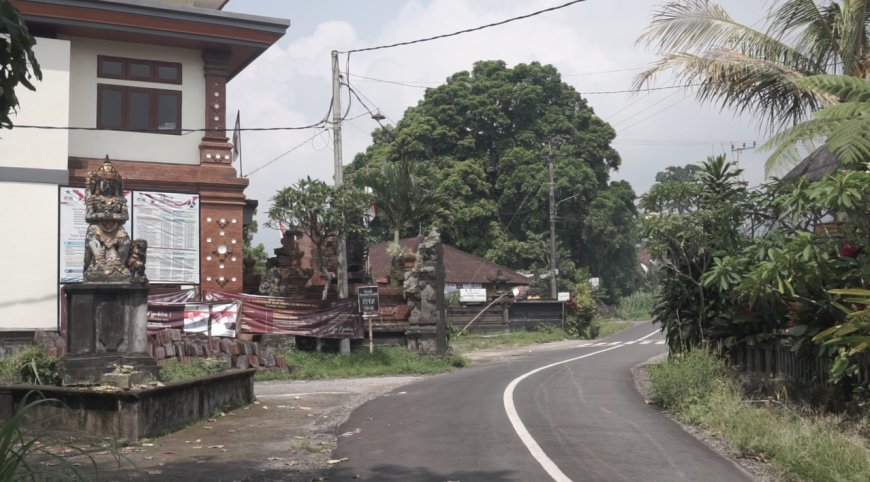
Angseri Village Area (Source: Personal Collection)
The population of Angseri Village reaches 4,378 people, consisting of 2,205 males and 2,173 females. With the majority of its residents practicing Hinduism (100%), the social life of the village is deeply rooted in Hindu traditions and culture, influencing various aspects of daily life. Harmony and a strong sense of community spirit characterize social interactions in the village, creating a harmonious environment that supports the well-being of its residents.
The main livelihood of Angseri Village residents lies in the agricultural sector, involving approximately 60% of the total population. The village's leading commodities include rice, secondary crops, and coconuts, which not only meet local needs but also contribute to the village economy. In addition to agriculture, the trade and home industry sectors play an important role in supporting the community's economy. Local products such as handicrafts and processed agricultural goods serve as additional sources of income for residents, making Angseri Village an exemplary community that optimizes its natural and human resources sustainably.
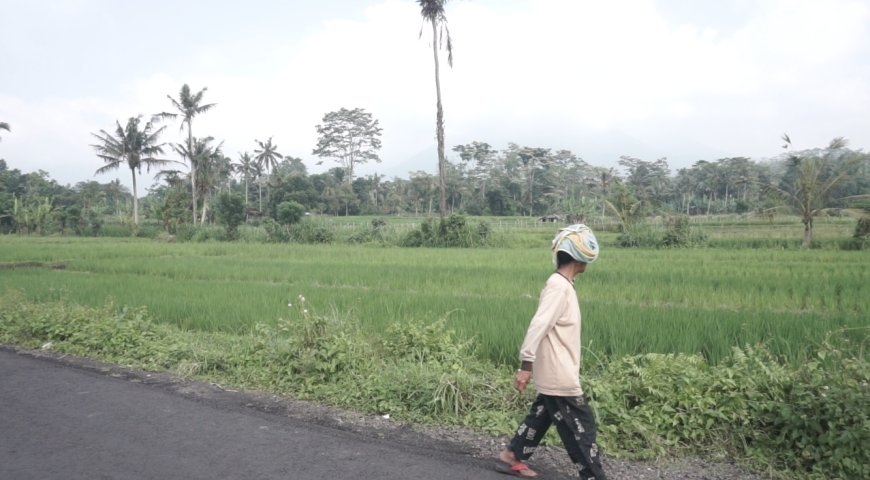
Rice Field Area of Angseri Village (Source: Personal Collection)
The community of Angseri Village lives in harmony guided by the philosophy of “Tri Hita Karana,” which encompasses three key aspects: the relationship between humans and God, humans and fellow humans, and humans and the environment. This philosophy serves as the cornerstone for maintaining balance in life, both spiritually and socially. In daily activities, these values are reflected through various religious and social practices that strengthen bonds among residents, fostering a peaceful and cohesive village atmosphere.
Angseri Village is also rich in art and culture, seamlessly integrated into the lives of its people. Traditions such as wood carving and the preparation of traditional cakes for ceremonial purposes are vital parts of the cultural heritage that continue to be preserved. Furthermore, the villagers demonstrate their commitment to environmental conservation by maintaining a sacred bamboo forest spanning 15 hectares. This forest not only holds spiritual significance but also functions as a conservation area supporting the village ecosystem, symbolizing the harmonious relationship between humans and nature.
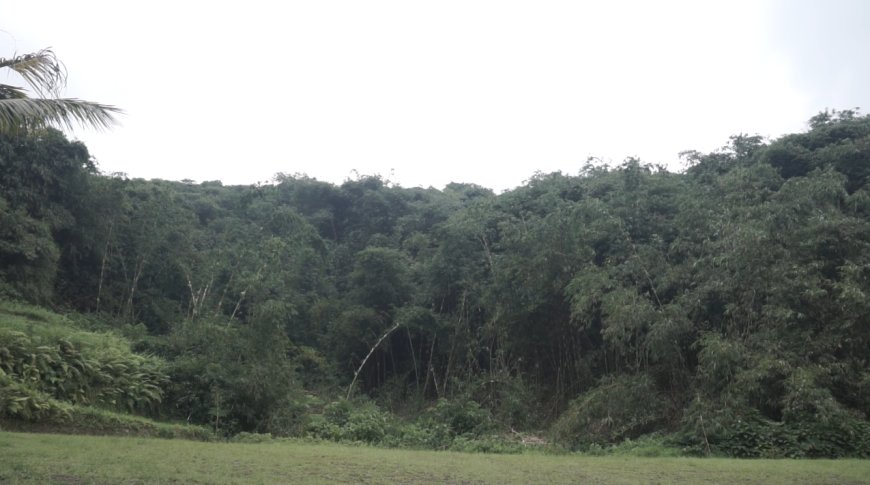
Bamboo Forest Area (Source: Personal Collection)
The economy of Angseri Village is predominantly agrarian. Agricultural land accounts for 86.7% of the total area. This sector is the mainstay, producing key commodities like rice, secondary crops, and coconuts. Additionally, trade and processing industries also contribute to the economy, including economic activities in the traditional market, which serves as a local trade hub. Household industries, such as crafts and food processing, also play a role in supporting community income.
Angseri Village is a destination that offers a harmonious blend of nature and culture in Baturiti District. With a vision rooted in agriculture and local wisdom, this village exemplifies how communities can coexist in harmony with their environment. Angseri Village is not only a hub of agricultural activity but also a symbol of dynamic social and cultural life at the foot of the mountain.
